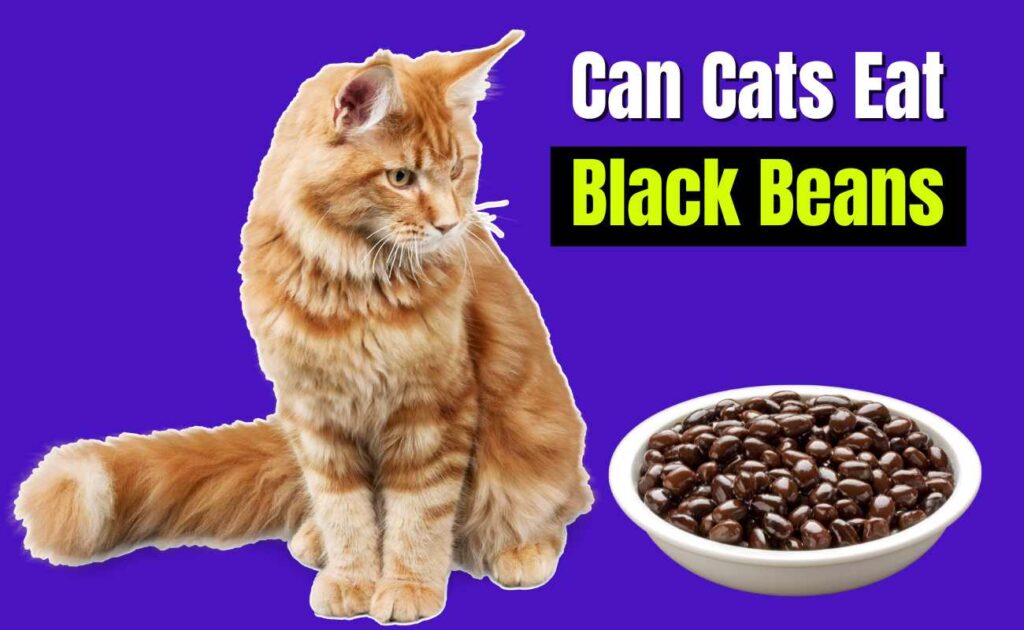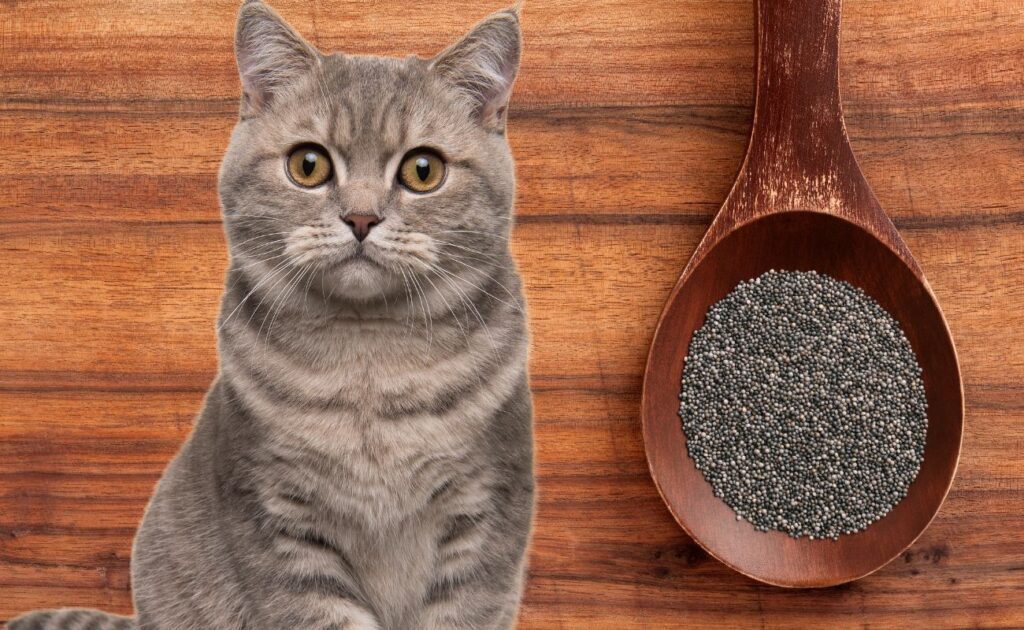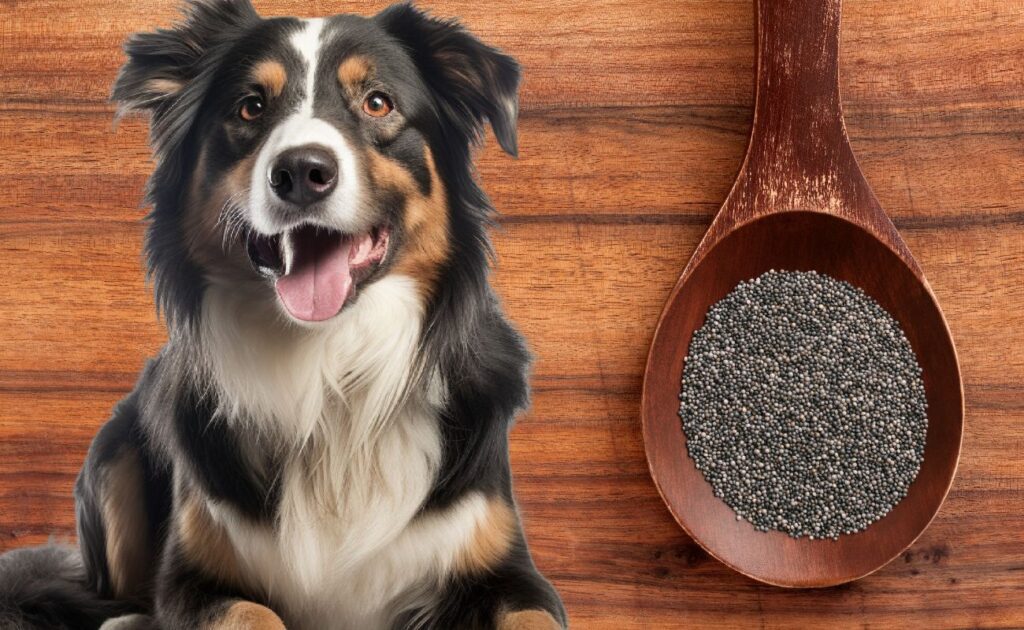Can Cats Eat Black Beans?

As cat owners, we often wonder if the foods we enjoy are safe for our furry friends. Cats are curious creatures, and they may show interest in what we eat, including black beans. But can cats eat black beans? In this article, we’ll explore whether black beans are safe for cats, what kind of beans they can eat, and offer some alternatives. Nutritional Overview of Black Beans Black beans are a popular food in many cuisines around the world. They’re rich in nutrients like fiber, protein, vitamins, and minerals. For humans, black beans are a healthy choice, offering benefits like improved digestion and heart health. But what about cats? Cats are obligate carnivores, which means their bodies are designed to eat meat. They need animal protein to thrive, and their digestive systems are not built to process plant-based foods like black beans. While black beans are nutritious for humans, they don’t offer the same benefits to cats. Here’s a nutritional values chart for lobster, which you can use in your article. This chart includes the typical nutritional content per 3.5 ounces (100 grams) of cooked lobster meat: Nutrient Amount per 100g % Daily Value (DV) Calories 77 kcal 4% Protein 16.0 g 32% Total Fat 0.8 g 1% – Saturated Fat 0.1 g 1% – Monounsaturated Fat 0.2 g – – Polyunsaturated Fat 0.4 g – Cholesterol 70 mg 23% Total Carbohydrates 0.0 g 0% – Dietary Fiber 0.0 g 0% – Sugars 0.0 g – Sodium 620 mg 27% Potassium 246 mg 7% Vitamin A 60 IU 1% Vitamin C 0.0 mg 0% Calcium 53 mg 5% Iron 1.0 mg 6% Omega-3 Fatty Acids 0.2 g – Notes: Calories: Lobster is relatively low in calories compared to other meats, making it a lean protein source. Protein: High in protein, which is essential for muscle maintenance and overall health. Total Fat: Very low in fat, which is beneficial for maintaining a lean diet. Cholesterol: Contains a moderate amount of cholesterol, so it’s important to offer it in small amounts. Sodium: Lobster is naturally high in sodium, which can be a concern if consumed in large quantities, especially for dogs. This chart provides a clear overview of the nutritional profile of lobster, helping you and your readers understand the potential benefits and risks. What Kind of Beans Can Cats Eat? Now that we know black beans aren’t a good choice, you might wonder if there are any beans that are safe for cats. The truth is, most beans are not ideal for cats. However, some beans might be less harmful than others. Safe Beans (in very small amounts): Green beans: Low in calories and fiber, they can be a safe treat in moderation. Cooked peas: These are sometimes found in cat food and can be safe in small amounts. Unsafe Beans: Kidney beans: Contain lectins, which can be toxic to cats if not properly cooked. Chickpeas: High in fiber and difficult for cats to digest. Lentils: Also high in fiber, which can lead to digestive issues. Even though some beans are less harmful, it’s important to remember that cats don’t need beans in their diet. Their nutritional needs are best met through a diet rich in animal proteins. Alternatives to Black Beans for Cats If you’re looking for healthy alternatives to black beans for your cat, there are plenty of options that are better suited to their dietary needs. 1. Meat-Based Treats: Cats thrive on meat, so offering small pieces of cooked chicken, turkey, or beef can be a great treat. These are easy for cats to digest and provide the protein they need. 2. Commercial Cat Foods: Many high-quality cat foods are formulated to meet all of a cat’s nutritional needs. Some even include small amounts of safe vegetables or legumes, but these are carefully balanced to ensure your cat’s health. 3. Cat-Specific Treats: There are many treats on the market designed specifically for cats. These treats often contain animal proteins and are made to be both tasty and nutritious for your cat. When introducing any new food to your cat’s diet, it’s important to do so slowly. This helps you monitor for any signs of digestive discomfort or allergic reactions. Conclusion So, can cats eat black beans? While black beans are not toxic to cats, they are not a suitable food for them. Cats are carnivores, and their bodies are designed to thrive on a diet rich in animal proteins. Black beans, and most other beans, can cause digestive issues and do not offer any significant benefits to your cat’s health. Instead of black beans, consider offering your cat meat-based treats or high-quality commercial cat foods that meet their nutritional needs. Always consult your veterinarian before introducing new foods to your cat’s diet to ensure their health and well-being.
Are Poppy Seeds Bad for Cats?

Introduction to Poppy Seeds and Cats Cats are curious creatures, often intrigued by new smells and tastes. As responsible pet owners, it’s essential to know which foods are safe and which are harmful to our feline friends. One common question is: are poppy seeds bad for cats? Poppy seeds, derived from the opium poppy, are commonly used in various culinary dishes and baked goods. While they add a delightful crunch and nutty flavor to human foods, their impact on cats can be quite different. In this blog, we will explore the potential risks of poppy seeds for cats and provide guidance on how to keep your pet safe. The Composition of Poppy Seeds To understand whether poppy seeds are bad for cats, it’s crucial to look at their composition. Poppy seeds contain small amounts of opiates, such as morphine and codeine. These substances are naturally occurring alkaloids that can affect the central nervous system. While the opiate content in poppy seeds is minimal, it can still pose a risk to cats, especially if consumed in large quantities. Cats have a different metabolic system compared to humans, making them more susceptible to the effects of certain substances. Nutritional Profile of Poppy Seeds Here is a comprehensive table detailing the nutritional profile of poppy seeds per 100 grams: Nutrient Amount per 100g Calories 525 kcal Total Fat 41.6 g Saturated Fat 4.5 g Monounsaturated Fat 5.97 g Polyunsaturated Fat 28.13 g Cholesterol 0 mg Sodium 26 mg Total Carbohydrates 28.13 g Dietary Fiber 19.5 g Sugars 2.99 g Protein 17.99 g Vitamins Vitamin A 0 IU Vitamin C 1 mg Vitamin E 1.77 mg Vitamin K 0 mg Thiamin (B1) 0.854 mg Riboflavin (B2) 0.1 mg Niacin (B3) 0.896 mg Vitamin B6 0.247 mg Folate (B9) 82 µg Minerals Calcium 1438 mg Iron 9.76 mg Magnesium 347 mg Phosphorus 870 mg Potassium 719 mg Sodium 26 mg Zinc 7.9 mg Copper 1.63 mg Manganese 6.707 mg Selenium 13.5 µg This nutritional profile highlights that poppy seeds are a rich source of healthy fats, dietary fiber, protein, and several essential vitamins and minerals. However, it is crucial to remember that despite their nutritional benefits, poppy seeds are not safe for dogs and should be kept out of their diet. Symptoms of Poppy Seed Toxicity in Cats If a cat ingests poppy seeds, it may exhibit various symptoms of toxicity. The severity of these symptoms can depend on the amount consumed and the individual cat’s sensitivity. Common signs of poppy seed poisoning in cats include: Lethargy: Affected cats may appear unusually tired or weak. Gastrointestinal Issues: Vomiting and diarrhea are common symptoms. Respiratory Distress: Difficulty breathing or rapid breathing may occur. Neurological Symptoms: Cats may experience tremors, seizures, or even coma in severe cases. If you suspect your cat has ingested poppy seeds and is showing any of these symptoms, it’s crucial to seek veterinary care immediately. Preventing Poppy Seed Ingestion Prevention is always better than cure when it comes to the health of our pets. Here are some practical steps to prevent your cat from ingesting poppy seeds: Store Food Safely: Keep foods containing poppy seeds out of your cat’s reach. Store them in sealed containers or cabinets. Educate Household Members: Ensure that everyone in your household knows about the potential dangers of poppy seeds and other harmful foods for cats. Monitor Your Cat: Keep an eye on your cat during meal times and ensure they don’t have access to your plate or leftovers. Provide Safe Treats: Offer your cat safe and healthy treats to discourage them from seeking out human foods. By following these steps, you can minimize the risk of your cat accidentally ingesting poppy seeds. Alternative Safe Treats for Cats While poppy seeds are not safe for cats, there are plenty of other treats that you can offer your feline friend. Some safe and healthy alternatives include: Cooked Meat: Small pieces of cooked chicken, turkey, or beef can be a tasty and nutritious treat. Catnip: Many cats enjoy catnip, which is safe and non-toxic. Commercial Cat Treats: Look for treats specifically designed for cats, which are formulated to meet their dietary needs. Vegetables: Some cats enjoy small amounts of cooked vegetables like carrots or peas. Always introduce new treats gradually and in moderation to ensure your cat doesn’t have any adverse reactions. Summary: Are Poppy Seeds Bad for Cats? In conclusion, are poppy seeds bad for cats? Yes, poppy seeds can be harmful to cats due to their opiate content. Even small amounts can cause symptoms of toxicity, making it essential to keep foods containing poppy seeds out of your cat’s reach. By being aware of the potential dangers and taking preventive measures, you can help ensure your cat’s health and safety. Always consult with your veterinarian if you have any concerns about your cat’s diet or if you suspect they have ingested something harmful. Keeping your cat safe requires vigilance and a proactive approach to their well-being.
Are Poppy Seeds Bad for Dogs?

When it comes to our beloved pets, their health and well-being are always at the forefront of our minds. As dog owners, we often wonder about the safety of various foods and ingredients. One common question that arises is: are poppy seeds bad for dogs? In this blog, we will delve into the potential risks of poppy seeds for dogs, discuss symptoms of toxicity, and offer guidance on what to do if your dog consumes poppy seeds. Understanding Poppy Seeds Poppy seeds come from the opium poppy plant, scientifically known as Papaver somniferous. These tiny seeds are commonly used in baking and cooking, adding a unique flavor and texture to a variety of dishes. While poppy seeds themselves are not highly toxic, they contain alkaloids like morphine and codeine, which can pose health risks to dogs. Are Poppy Seeds Bad for Dogs? The short answer to the question are poppy seeds bad for dogs is yes, they can be. Although the seeds contain very low levels of opiates, these substances can be harmful to dogs even in small quantities. Dogs are more sensitive to these compounds compared to humans, and ingestion of poppy seeds can lead to toxicity. Therefore, it is best to avoid feeding your dog any food that contains poppy seeds. Nutritional Profile of Poppy Seeds Here is a comprehensive table detailing the nutritional profile of poppy seeds per 100 grams: Nutrient Amount per 100g Calories 525 kcal Total Fat 41.6 g Saturated Fat 4.5 g Monounsaturated Fat 5.97 g Polyunsaturated Fat 28.13 g Cholesterol 0 mg Sodium 26 mg Total Carbohydrates 28.13 g Dietary Fiber 19.5 g Sugars 2.99 g Protein 17.99 g Vitamins Vitamin A 0 IU Vitamin C 1 mg Vitamin E 1.77 mg Vitamin K 0 mg Thiamin (B1) 0.854 mg Riboflavin (B2) 0.1 mg Niacin (B3) 0.896 mg Vitamin B6 0.247 mg Folate (B9) 82 µg Minerals Calcium 1438 mg Iron 9.76 mg Magnesium 347 mg Phosphorus 870 mg Potassium 719 mg Sodium 26 mg Zinc 7.9 mg Copper 1.63 mg Manganese 6.707 mg Selenium 13.5 µg This nutritional profile highlights that poppy seeds are a rich source of healthy fats, dietary fiber, protein, and several essential vitamins and minerals. However, it is crucial to remember that despite their nutritional benefits, poppy seeds are not safe for dogs and should be kept out of their diet. Symptoms of Poppy Seed Toxicity in Dogs If a dog ingests poppy seeds, it is important to recognize the symptoms of toxicity. These can vary based on the amount ingested and the size of the dog. Common symptoms of poppy seed toxicity include: Lethargy: Dogs may appear unusually tired or weak. Depression: A dog may seem unusually down or disinterested in activities. Ataxia: This refers to a lack of coordination, causing the dog to stumble or walk unsteadily. Tremors: Involuntary shaking or muscle twitching can occur. Coma: In severe cases, dogs can fall into a coma. If you notice any of these symptoms after your dog has ingested poppy seeds, it is crucial to seek veterinary care immediately. What to Do If Your Dog Eats Poppy Seeds If your dog consumes poppy seeds, the first step is to remain calm and assess the situation. Try to determine how much your dog has eaten and contact your veterinarian for advice. In many cases, the vet may recommend bringing your dog in for an examination. Treatment for poppy seed ingestion typically involves supportive care, such as intravenous fluids, and medications to control symptoms like seizures or tremors. Preventing Poppy Seed Ingestion To ensure your dog stays safe, it is best to keep foods containing poppy seeds out of reach. This includes baked goods like bagels, muffins, and cakes, as well as any dishes that may use poppy seeds as a garnish. Additionally, educating family members and guests about the potential risks of poppy seeds can help prevent accidental ingestion. Safe Alternatives to Poppy Seeds If you are looking for safe treats and foods for your dog, there are plenty of alternatives that pose no health risks. Some dog-friendly options include: Carrots: A crunchy and healthy snack that many dogs love. Blueberries: These are rich in antioxidants and can be a tasty treat. Peanut Butter: As long as it does not contain xylitol, peanut butter is a favorite for many dogs. Plain Popcorn: Unsalted and unbuttered popcorn can be a fun and safe treat in moderation. Summary: Are Poppy Seeds Bad for Dogs? In conclusion, while poppy seeds are a common ingredient in many human foods, they are not safe for dogs. The presence of opiates, even in small amounts, can lead to serious health issues for our canine companions. Understanding the symptoms of toxicity and knowing what to do in case of ingestion can help protect your dog. By keeping foods with poppy seeds out of reach and opting for safer alternatives, you can ensure your furry friend stays healthy and happy. Always consult with your veterinarian if you have any concerns about your dog’s diet or health.

